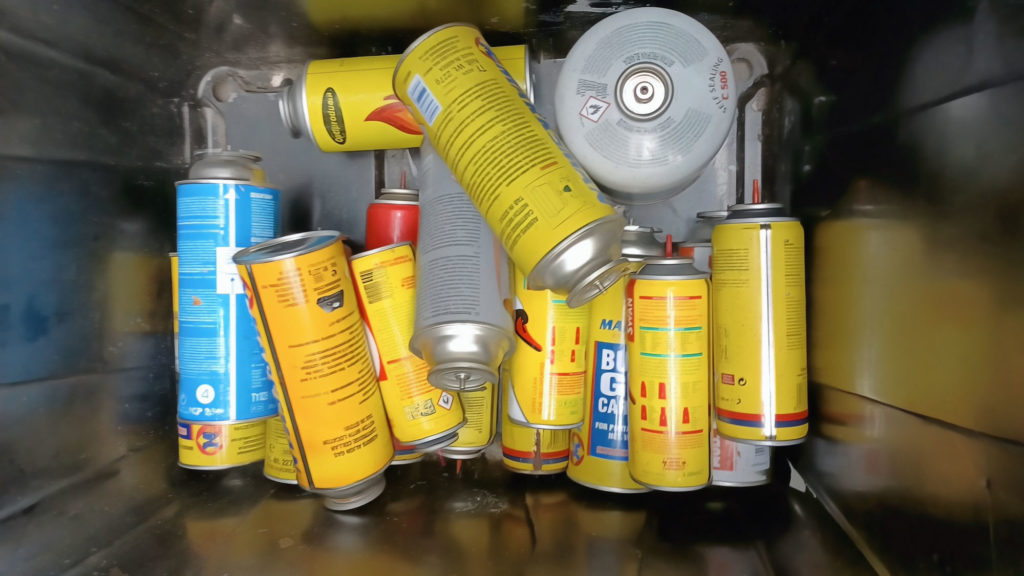As camping season gets underway, Somerset Council and its kerbside collections contractor, SUEZ, are reminding residents of the danger of putting gas canisters in their recycling.
This year alone, more than 1,000 potential fires from gas canisters have been avoided, thanks to the vigilant crews at the material recovery facilities in Taunton and Evercreech.
Due to the increasing number of canisters being put out with recycling, crews have had no choice other than to manually check recycling ahead of the automated sorting process to avoid sparking dangerous blazes.
The small canisters, mainly used for camping gas stoves, are often mistakenly put in the kerbside recycling ‘Bright Blue Bag’. The bag can be used to recycle empty aerosol bottles (for example, hair spray or deodorant), but should never be used to dispose of gas canisters.
- Aerosols contain a smaller amount of ignitable gas and the bottles are under less pressure. This means they are less likely to ignite if crushed.
- Gas canisters are almost all gas which is stored at a high pressure. This makes the bottles more likely to explode if crushed.
Gas canisters must be taken a local household recycling site. Always check with team on-site for the correct area to put these.
And it is not just gas canisters that can pose a risk for collection crews, other items including batteries and barbeques are potential fire starters.
Over the past year, ten fires have started at SUEZ’s material recovery facilities or within trucks. The fires have broken out when hazardous materials including large and household batteries as well as gas canisters have mistakenly gone through the baling process. Fortunately, quick responding crews have prevented injury or serious damage occurring.
Disposable barbeques put into rubbish bins without being fully soaked and extinguished can retain heat, smoulder and start a fire in trucks and when tipped back at the depot.
Fires cause damage and put lives at risk, as the weather warms up Somerset Council and SUEZ are calling on residents to please do the right thing with these potentially dangerous items.
What should you do?
- Small household batteries can be recycled in weekly kerbside collections, but must be presented in a clear, tied plastic bag and clearly placed on the top of the recycling box. Batteries must not be left loose in recycling boxes, put in the Bright Blue Bag or in the rubbish bin.
- Large batteries, such as car batteries, cannot be recycled at the kerbside and should be taken to a recycling site.
- Small household batteries and electricals can also be taken to recycling sites, always check with team on-site for the correct area to put these.
- Small gas canisters – like those used in camping stoves are not recyclable in kerbside collections and must not be put in the rubbish bin. They must be taken a local household recycling site. Always check with team on-site for the correct area to put these.
- Disposable barbecues should be fully immersed in water and left to cool completely before putting into the rubbish bin.
For more information visit Somerset Council’s safety pages.
The warmer summer months can bring an increase in fires on trucks and sorting facilities, every fire poses a risk to staff and the environment. Although items are disposed of with good intentions, it is important to follow the council’s guidelines on how to dispose of items safely.
Somerset’s waste and recycling collection crews make more than 380,000 collections a week. For more information about what happens to the recycling they collect, check the Somerset Recycling Tracker on the Somerset Council website

